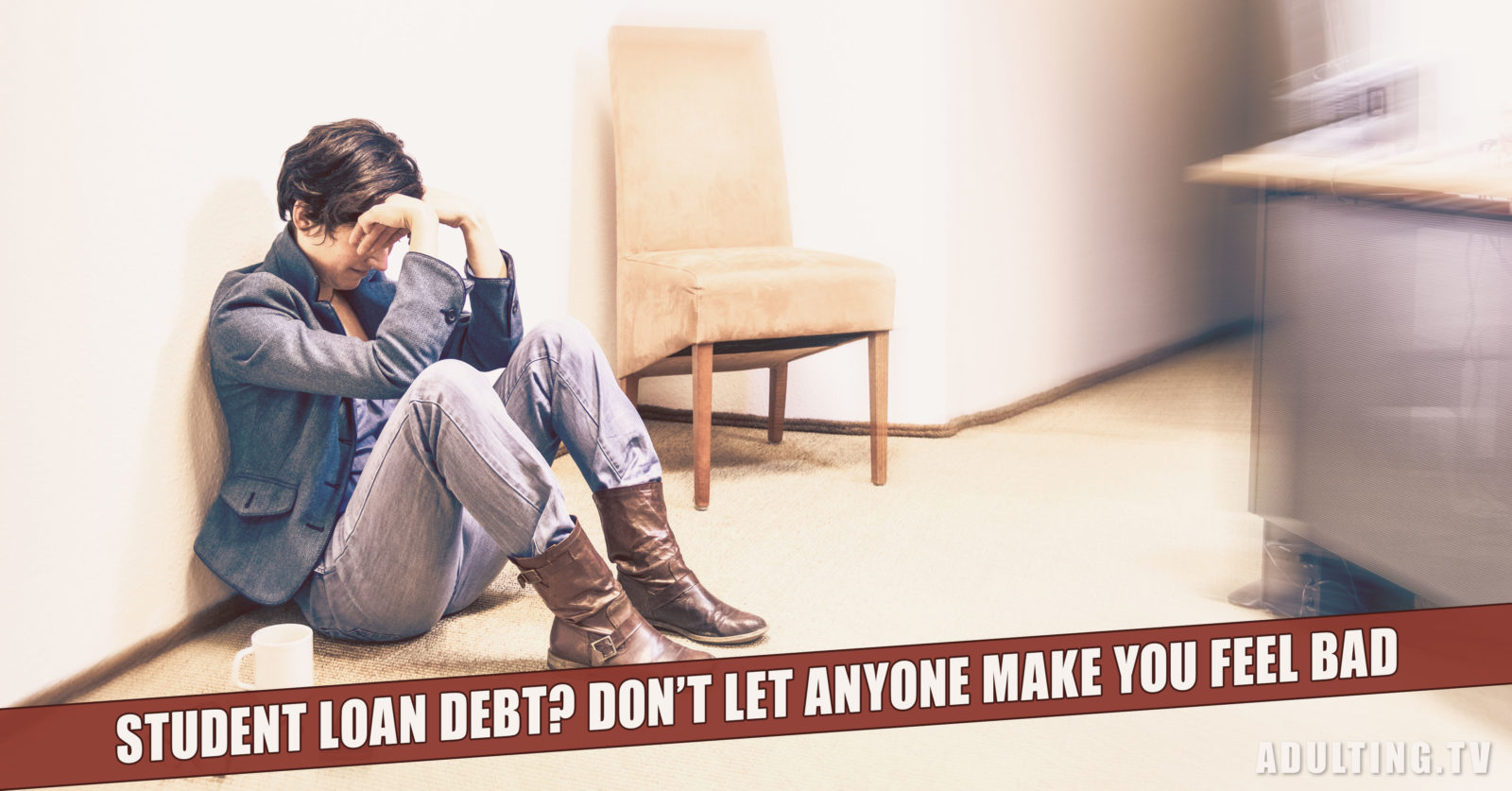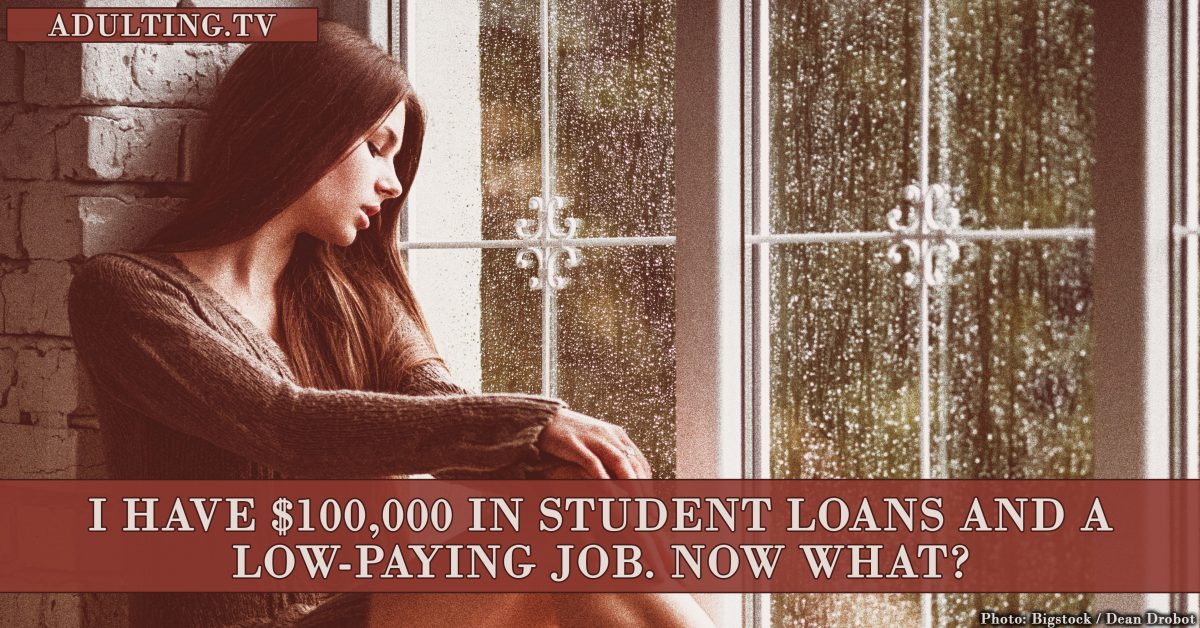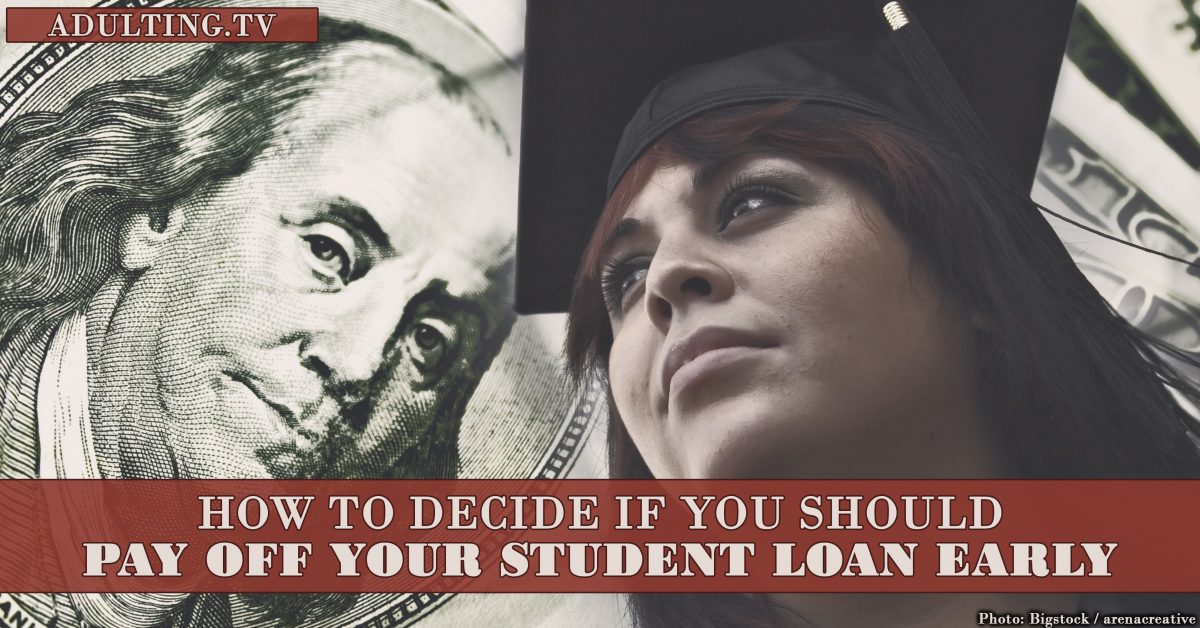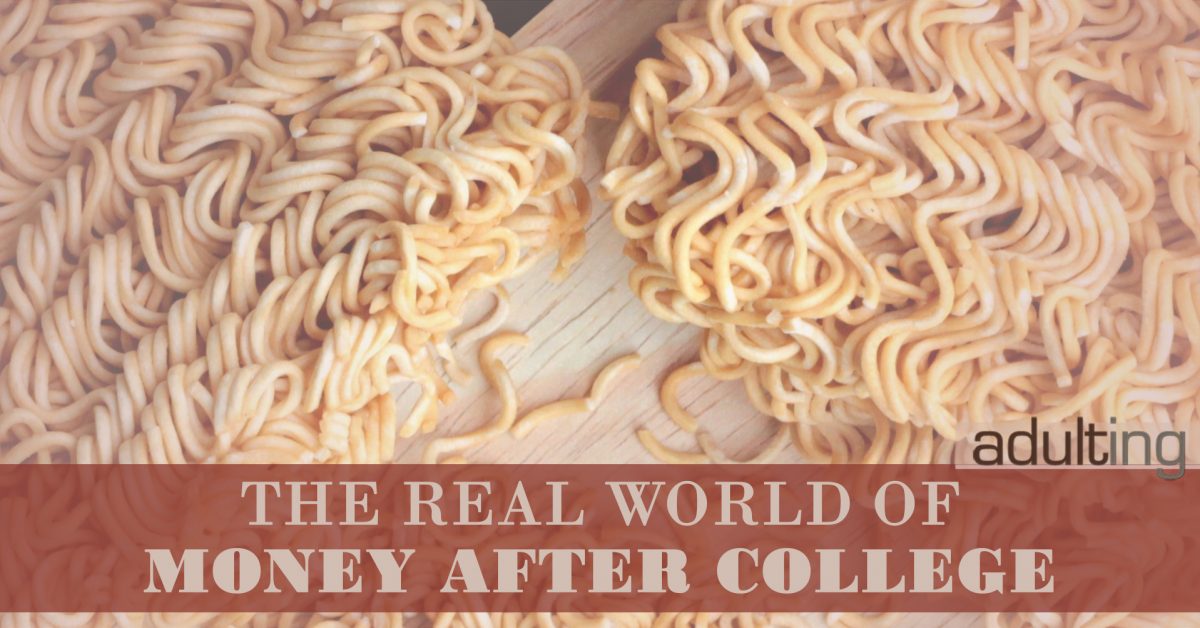You finished your bachelor’s degree and you’re out in the real world. You’re feeling real pressure to find a good job along your career path. It’s those massive student loan bills. You dread opening them because they remind you of the four or more years you lived without a major concern about your finances.
Now your college education seems like a burden. What did your bachelor’s degree get you, anyway? You’re 22 and you don’t have a job yet. Or you’re 30 and you’re still not sure if you’re on the “right” path.
If you haven’t been ignoring the reality of your debt, with your head in the sand like I was for a few years after earning my bachelor’s degree, you’re fully aware that student loans — like all debt — reduce flexibility in your life. You can’t afford to delay your career. You can’t even afford to go out with your friends (but you probably will anyway).
And if it feels a little unfair that all you did was earn a college degree like your parents, it might be. The cost of a college education has grown much faster than income for most Americans.
While your parents could have afforded their education at a state college on their own by working through college, the economy doesn’t make that as easy today. At the same time, college students and millennials are told en masse by society (and maybe you’ve heard these a few times):
- “You have no work ethic.” (What? I’m working harder than everyone I know just to survive!)
- “You expect everything to be handed to you.” (NO. I just expect to be able to get by and be treated decently.)
- “You want the best of what life has to offer without putting in the effort to achieve it.” (I’m more than willing put in the time and effort, but I’m not convinced that the system is set up for us to do more than chase a target that’s moving farther away faster than I can run.)
You’ve been set up to fail financially by the world while you were a teenager, and that same world does blame you unfairly. Well, we all have friends who embody the millennial stereotype — but not you, right?
Is college no longer worthwhile?
Financial experts are now making headlines by tearing apart the idea of higher education. Whether it’s due to the evolution of the curriculum over the years, or the lasting effect of the recent recession on the idea that the only worthwhile type of education is one that leads directly to a job that in high demand, loud voices are encouraging alternative paths.
When someone tells you striving to get the best education possible was a stupid mistake, and you should have gone to a trade school to learn a skill instead of getting a degree, don’t take it personally. And don’t feel bad. These are the two most important financial justifications for pursuing a college education:
- Even today, with the cost of a bachelor’s degree, college graduates will, on average, earn more and have higher rates of employment than those without.
- Even today, with the high price of college and resulting student loan debt, a bachelor’s degree pays for itself with higher earnings.
But return on investment (ROI) isn’t the only benefit of a college degree.
Ignore the financial experts.
Here’s some more good news for those who are being told their degree is worthless.

- Liberal arts is the hot ticket in Silicon Valley.
- Studying the liberal arts, as many college students do, makes you valuable to all types of businesses.
- A college education is still the gateway to the middle class. Completing an undergraduate degree is the most effective way of breaking the cycle of generational poverty.
If you grew up in a middle class environment, some of the opportunities colleges affords the world are privileges you all ready have. And financial experts take advantage of those who don’t recognize their own privilege, especially when it comes to talking about debt. Whenever the unemployment rate is high, we find more encouragement in the media of entrepreneurship as the singular path to a lucrative life, replacing of education.
You have probably heard at least one person tell you that education is overrated and the best path to success is starting a business. You don’t hear that most businesses fail and that a college education still plays a major role in financial aptitude, even for entrepreneurs.
- A good educational foundation greatly improves someone’s ultimate entrepreneurship goals by enhancing the cognitive, business, and life skills that good entrepreneurs need.
- Many of your anti-education role models had other types of assistance that you might not have, and the louder they talk about their success, the more they’re hiding about their privileges.
Sure, you should try to keep your cost of education low. Grants and scholarships are better than loans, of course. But now that you’re out of college, the goal is to manage the debt you do have, not allow the world make you feel guilty for prioritizing your future livelihood over buying a house immediately upon graduation.
So here’s what you can do.
Here’s the four-step plan to dealing with student loan debt.

1. Recognize that your debt does not make you a bad person, nor did you (necessarily) make a bad decision to pursue a college education. Yes, you may need to make some sacrifices now to manage your finances responsibly, but in most cases, the degree will be worth it.
That will be true even if you decide to change your career path, away from the focus of your degree! Any bachelor’s degree is better than no degree. If you didn’t screw around too much in the four-plus years it took you to pursue your undergrad education, and if you took a variety of courses and exposed your brain to a diverse array of ideas you wouldn’t have considered elsewhere, your education will never be worthless. It will continue to help you with whatever life you decide to live.
2. Get organized and pay attention. You can’t ignore your bills forever, so don’t even start ignoring. Tackle your responsibilities head on — and your student loan debt may be the first real responsibility you have in life for which there are consequences.
I ignored my bills for too long. Working at a low-paying nonprofit organization after college didn’t help. But I figured my life out and found a path that allowed me to totally eliminate all of my debt. This path wasn’t related to my college degree but I know that I succeeded thanks to my college experience.
3. Look at some of the options for helping you eliminate student loan debt. If you have federal student loans (and these are almost always better than private student loans), you can look into income-based repayment plans. If you’re just starting out in your career, you can lower your monthly payment to help you with cash flow.
You may qualify for loan deferment, so your payments are put on hold, and in some cases, you will not need to pay more interest while you wait for your deferment to end. If you don’t qualify for deferment, you may qualify for forbearance, which also gives you a grace period on your payments. But with a forbearance, you’ll still accrue more interest while you wait.
If you’re a teacher or you have a public service job, you may even qualify for the cancellation of some federal student loans. That’s not the only way the government is willing to help you. It is possible to get a tax credit for the student loan interest you pay.
I’m not going to suggest consolidating your loans, unless it’s with a federal consolidation at an interest rate that’s lower than what you have now. Now there are private companies willing to refinance your student loans, and there are some disadvantages; namely, you lose all the advantages for borrowers mentioned in this section.
And watch out; these private lenders pay financial “experts” bounties for signing up new borrowers through websites, and thus there are many more positive reviews on the internet than there would be otherwise. Still, you could end up saving some money — in exchange for a fee and limited flexibility — when you refinance with a private lender.
4. Pay it off consistently and regularly. Work out a plan to pay the student loans off well in advance of your schedule. Student loans will stick with you even if you need to declare bankruptcy (almost always), so do what you can to get rid of them as soon as possible.
And then celebrate! Because not only did you pay off your student loans, but you received a college education, and will most likely be better off in life than people who say you made a bad choice for getting a college education.
What about consolidating those student loans?
Getting a little technical, each year you borrowed money for college initiated a new loan. So you might have several different loans with different interest rates. I wrote above that I would only suggest consolidating this loans under certain circumstances.
The best option, if you have federal loans, is for a federal consolidation. But you may have private student loans, as will many students who have to borrow more and more to afford the education they’d like to pursue. You might want to consider using SoFi to consolidate. SoFi is a private lender that is focused on student loan consolidation. It takes less than two minutes to find out what interest rate you qualify for.
And if you do qualify, chances are good you can reduce your monthly payments. And if you’re struggling at the beginning of your career, allowing yourself some financial space to breathe may be worth the extra time it’ll take to pay off in the end. But you should carefully consider any important financial decision, think about the pros and cons, and put yourself in your future self’s shoes.


![[B042] Pay Off Your Big Student Loans ft. Choncé Maddox](https://adulting.tv/wp-content/uploads/2017/11/big-student-loans-1200x628.jpg)
![[A085] Debt Bondage: Hack Your Student Loans](https://adulting.tv/wp-content/uploads/2017/08/a085-cant-pay-student-loans-1200x628.jpg)

![[B023] Get a Financial Life ft. Beth Kobliner](https://adulting.tv/wp-content/uploads/2017/04/get-a-financial-life-1200x628.jpg)


![[A049] Dump Debt or Invest: Choose Wisely to Avoid Destruction](https://adulting.tv/wp-content/uploads/2016/12/a049-1-1200x628.jpg)
